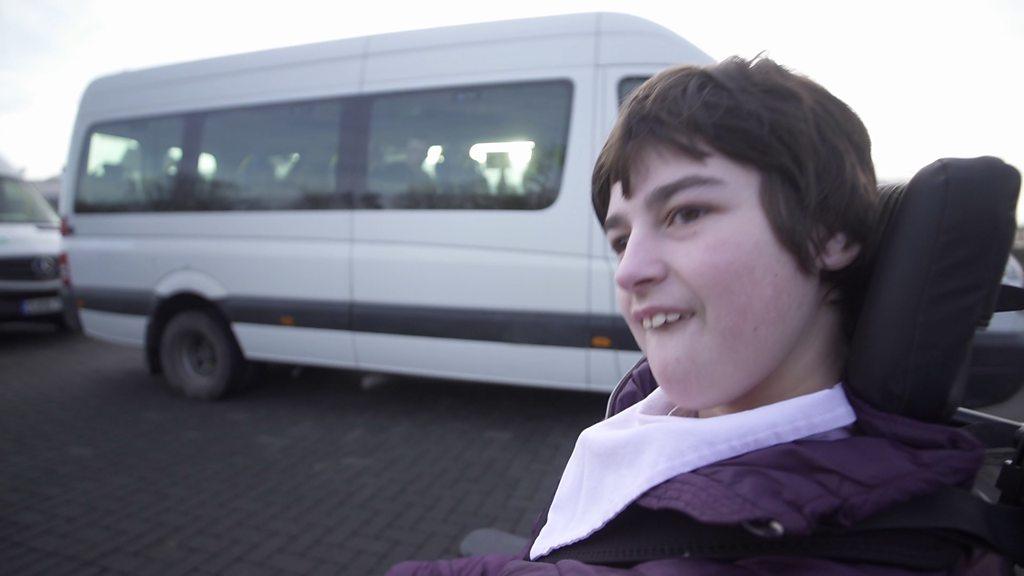Rail replacement services 'humiliating' disabled people
- Published
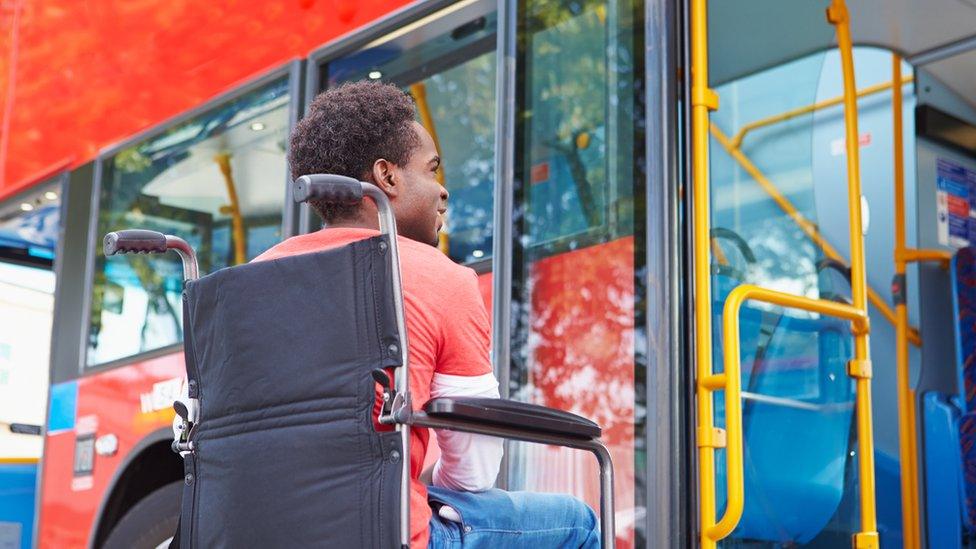
Figures show there were more accessible buses used than coaches in rail replacement services
Disabled rail passengers say they are left "humiliated" by inaccessible replacement bus and coach services.
Providers have until the end of the year to put on vehicles which anyone can use during disruption and engineering work.
Campaigner Anne Wafula Strike said long waits for taxis "restricted" the way disabled people travelled.
However the Rail Delivery Group says there are not enough suitable coaches to meet demand.
It said although figures showed some operators used few or no compliant vehicles, disabled passengers were provided accessible alternative transport, such as taxis.
Latest figures, covering up to summer 2019, suggest up to six out of 10 buses and coaches used in place of trains did not comply.
Rules on accessibility were passed in 2000 and come into force all buses and coaches from 31 December 2020.
However until legal advice was published last year, rail operators say they only needed to make "reasonable endeavours" to use fully accessible vehicles for replacement services, while providing alternative transport.
Anne Wafula Strike, a Team GB Paralympic wheelchair racer and disability rights campaigner from Harlow in Essex, said replacement services were "inconsistent" and "restrictive" for disabled people.
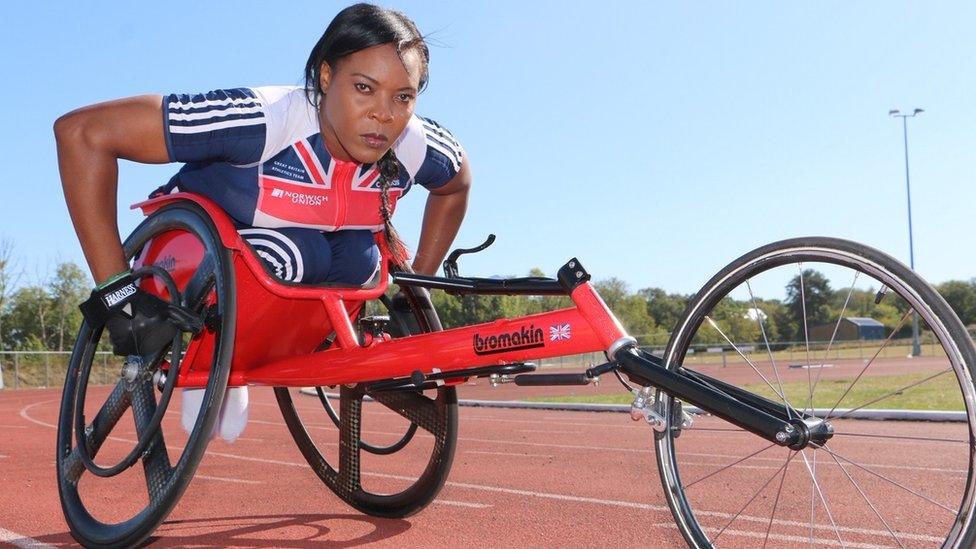
Anne Wafula Strike says 20 years has been "too long" for disabled people to wait for fully accessible services
"I want to be empowered to make the choice of how I travel," the 51-year-old said. "But at the moment if there are no taxis available and if there is a replacement service you have to wait a long time for another accessible train or coach, while able-bodied passengers can jump on the next one."
Mrs Wafula Strike said successive governments were to blame for delays in implementing the law by applying pressure on the rail industry, but not coach manufacturers, to provide the right vehicles.
"If the whole coach market had become compliant, this would have fixed the problem," she said. "For 20 years one party has sat and expected the other to act."
'Humiliating'
David Williamson, a wheelchair athlete and fundraiser who had both his legs amputated when he was a few months old, said his experiences with replacement services had been "awful".

David Williamson said he was frustrated that accessibility requirements had been "pushed back and pushed back"
Mr Williamson, from Brackley in Northamptonshire, added it was "rare" for rail companies to provide a taxi for him in place of a coach, forcing him to try to board.
"You're kind of reduced to half crawling up the steps," he said. "When you're a 41-year-old man, you've got a decent job...starting this Kilimanjaro-esque ascent...the whole process is humiliating."
Mr Williamson said it felt as if rail companies did not believe disabled people "have jobs to go to" and need the same access to public transport as non-disabled passengers.
'Extra barriers'
Doug Paulley, a wheelchair user and disability rights campaigner from Wetherby, West Yorkshire, said all he was asking for was "access to the same frustrations as anyone else" taking a rail replacement service.
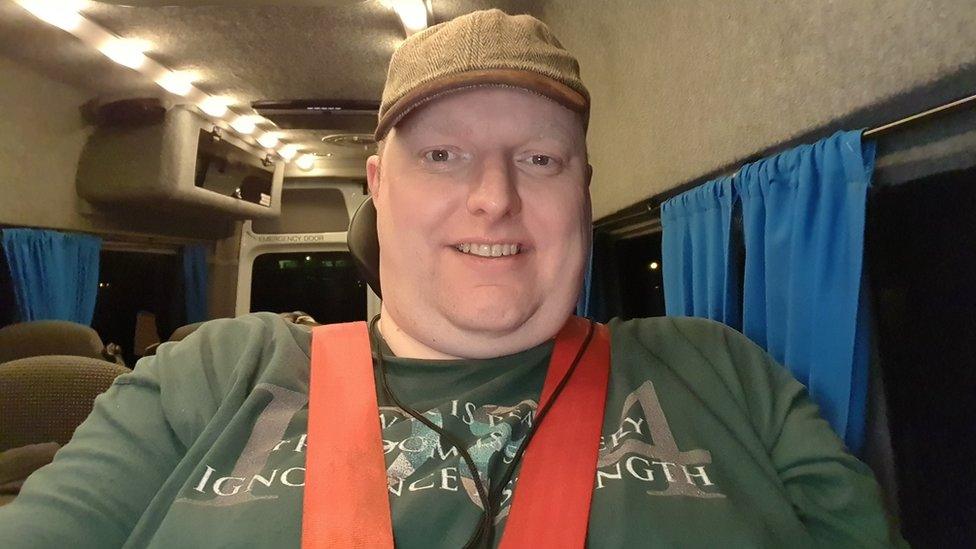
Doug Paulley said he did not feel sympathy for operators who need to purchase new, accessible, vehicles because the law had been clear for decades
The 42-year-old said: "It's really frustrating because the reason this legislation exists is so the experience should be as easy or difficult as it is for everybody else."
He added when alternative transport, like a taxi, was provided he often found it uncomfortable and with no toilet facilities.
"So I'm transported unsafely and in great discomfort, and usually substantially later than the buses," he said.
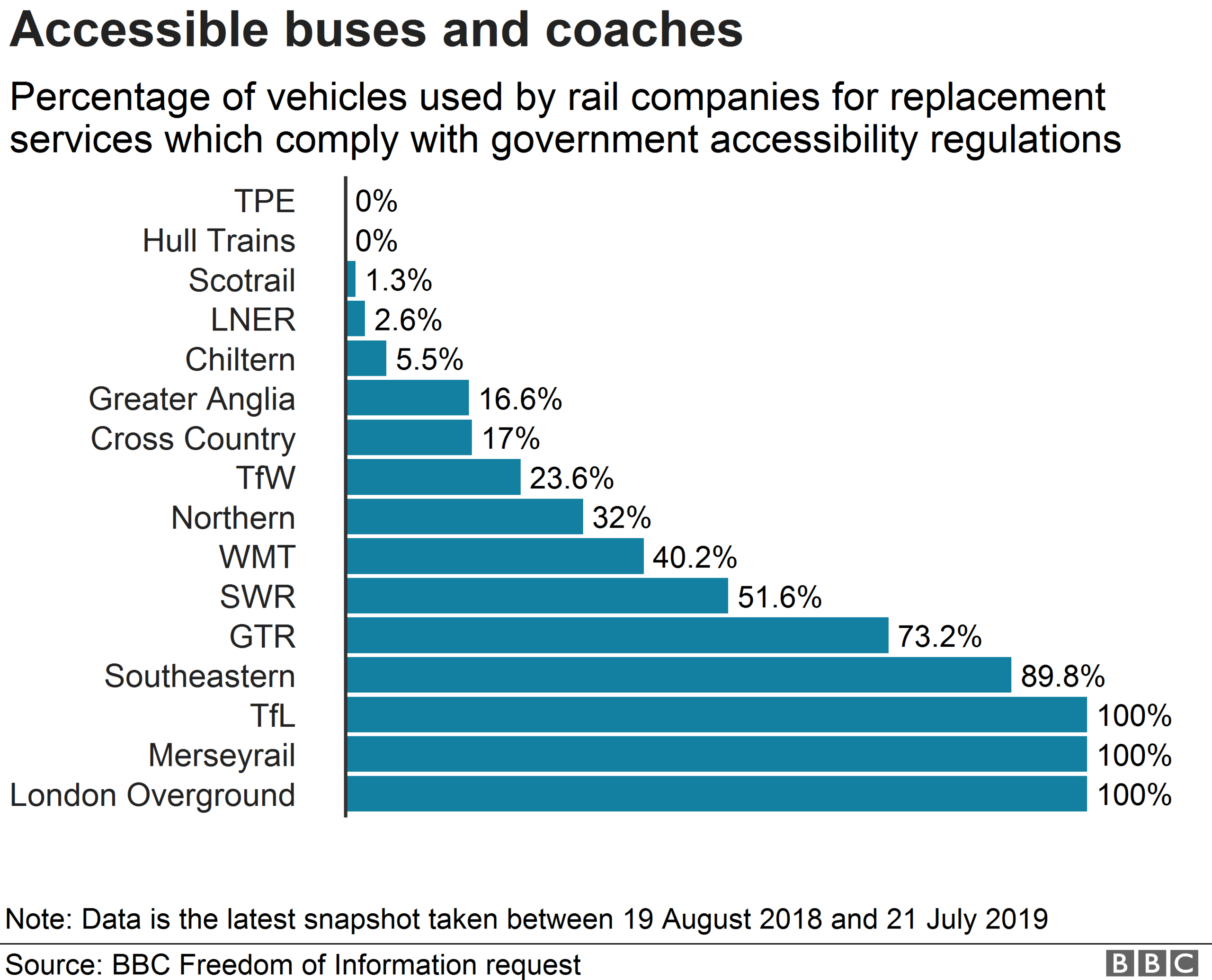
Following a consultation by the Office of Rail and Road, external regarding the availability and use of accessible vehicles, the BBC obtained figures for the number used by 16 out of 23 rail operators via a Freedom of Information request.
The latest data covered between August 2018 and July 2019.
What do the rail companies say?
Since the period covered by the data Southeastern Railway said it now used accessible vehicles for 99% of journeys.
South Western Railway said it used fully accessible vehicles in its metropolitan areas, but some routes required coaches due to distance and luggage space. It said compliant vehicles for these journeys were in "very limited supply".
Northern Trains said throughout 2020 "the vast majority of replacement transport" was fully accessible.
Dominic Lund-Conlon, head of accessibility and inclusion at the Rail Delivery Group, said the industry had plans to boost the number of vehicles available, as there were currently not enough accessible coaches to meet demand.
"All operators will ensure that disabled passengers can continue their journey in a vehicle that meets their needs and enables a safe and comfortable journey," he added.
A spokesman for bus and coach industry body the Confederation of Passenger Transport, said investment in fully accessible coaches was "difficult" for companies, "with costs running into the £100,000s per vehicle".
He added the coronavirus pandemic had made the situation worse for coach companies, forcing them to put investment plans "on hold".
"The industry recognises the need to improve accessibility and is working with government to ensure this happens as quickly as possible," the spokesman said.
What do charities and the government want?
Ceri Smith, from the disability charity Scope, said: "Accessibility should be a right, not a privilege."
"We need a single transport regulator which can provide more consistency of regulation between different modes and hold transport providers to account," she said.
The Office of Rail and Road has introduced new guidance, external for operators on replacement services.
Stephanie Tobyn, from the ORR, said companies must "maximise the use" of accessible vehicles and improve information to passengers on their availability.
A Department for Transport (DfT) spokesman said: "It is frustrating that the independence of some disabled people remains hampered by the shortfall in rail replacement buses or coaches which do not meet standards for accessibility."
He said the government was working with train companies to ensure they increase the number of vehicles and deliver "a long term solution to allow disabled people to travel with confidence".
The DfT said from December if operators were reported to have breached accessibility regulations, traffic commissioners would decide if there should be "appropriate and proportionate" sanctions.
- Published21 June 2020
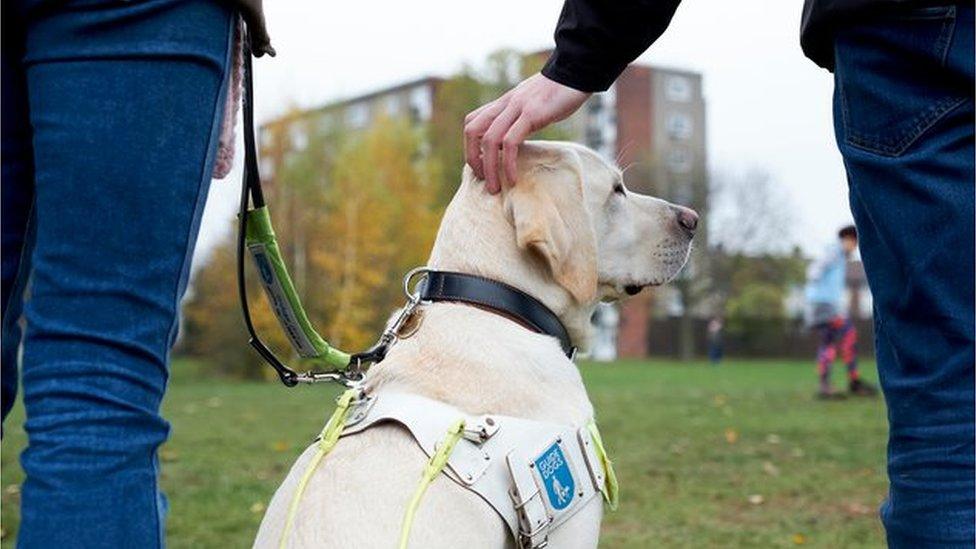
- Published20 February 2020
